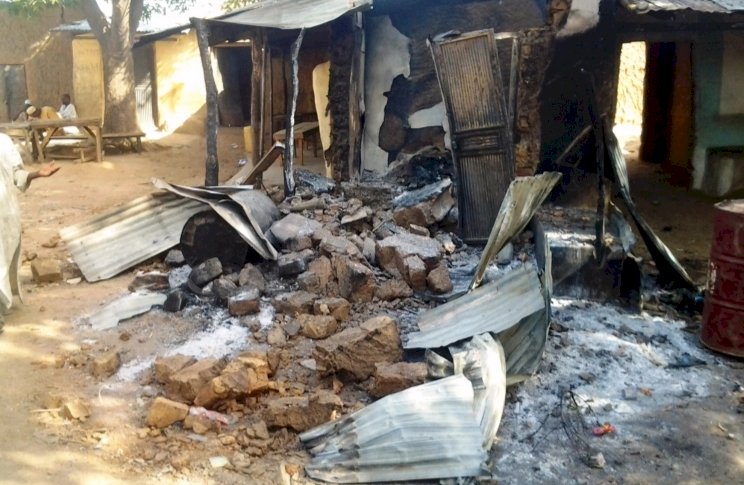Nigeria: 200 Dead In Bandit Attacks In Zamfara
More than 140 people were buried following killings of civilians by motorcycle-riding gunmen in Zamfara state with many still unaccounted for.

An estimated 200 people have been killed in attacks by armed bandits in the northwestern Nigerian state of the Zamfara, residents say, following military air raids on their hideouts last week. The state government said 58 people were killed in the mass killings. However, locals who returned to their villages on Saturday to organise
mass burials told the media the death toll exceeded 200. The military conducted air attacks on Monday on targets in the Gusami forest and west Tsamre village in Zamfara, killing more than 100 bandits including two of their leaders. More than 300 gunmen on motorcycles stormed eight villages in the Anka local area in Zamfara
on Tuesday and started shooting sporadically, killing at least 30 people. Attackers also rampaged through 10 villages in Anka and Bukkuyum districts on Wednesday through Thursday, firing at residents and looting and burning homes. Babandi Hamidu, a resident of Kurfa Danya village, said the assailants were shooting anyone
on sight. More than 140 people were buried across the 10 villages and the search for more bodies is ongoing because many people are unaccounted for, Hamidu told the media. President Muhammadu Buhari also said in a statement on the Saturday the military acquired more equipment to track down and eliminate criminal gangs,
which have been subjecting people to a reign of terror, including through the illegal imposition of taxes on the communities under siege. The latest attacks also on innocent people by the bandits is an act of desperation by mass murderers, now under relentless pressure from our military forces, Buhari said. Buhari also added the
government will not relent in its military operations to get rid of the armed gangs. Northwest Nigeria has seen a sharp rise in mass abductions and also other violent crimes since late 2020 as the government struggles to maintain law and order. Last year, bandits also made international headlines with a series of high-profile
attacks on schools and colleges where they kidnapped hundreds of pupils. Most were released but some of those students are still being held. Bandit violence has its roots in clashes between nomadic cattle herders and sedentary farmers over land and resources. But tit-for-tat attacks have over the years spiralled into broader
criminality. Nigeria’s armed forces said last week they killed 537 armed bandits and other criminal elements in the region and arrested 374 others since May last year, while 452 kidnapped civilians were rescued. Bandits loyal to notorious gang leader Bello Turji suffered heavy losses last month also in ground-and-air raids on their
forest-based camps. Security analyst Kabir Adamu, with Abuja-based Beacon Consulting Nigeria, also told the media last week’s raids could be in response to military operations. Angered by this, and perhaps by the fact that that they were facing certain death, [they] decided to move to other locations and in the course of this they
seem to be also conducting these attacks, Adamu said. Nigeria designated bandits as terrorist groups, allowing for tougher sanctions under the terrorism prevention act for suspected shooters, their informants, and also supporters such as those caught supplying them with fuel and food.
